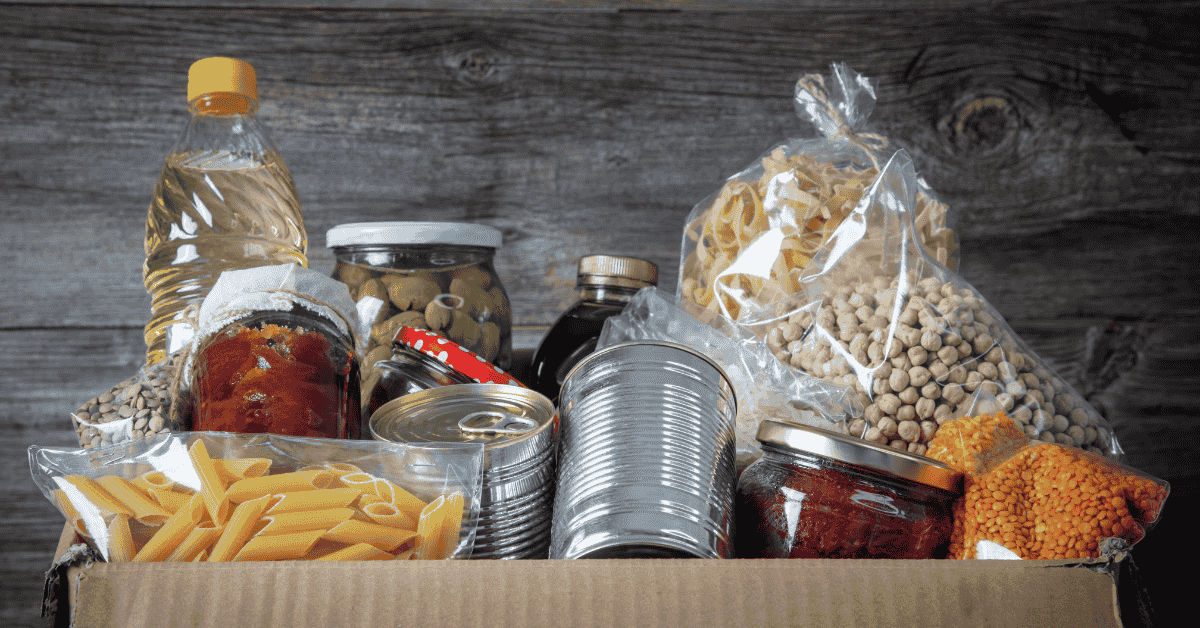Bilka, a major Danish supermarket chain, has introduced a so-called “prepping box” to help citizens prepare for emergency situations, but experts warn it lacks certain essential survival items. The Bilka survival box includes a mix of non-perishable food items and basic hygiene supplies.
Bilka Survival Box Targets Everyday Shoppers
As concerns around national security and emergency preparedness increase across Denmark, the popular supermarket chain Bilka, owned by the Salling Group, has launched a ready-made emergency kit designed to support two people for three days. The Bilka survival box contains 48 items and is priced at 600 Danish kroner, roughly 86 US dollars. While the initiative is broadly well received, some experts suggest it may fall short in crucial areas.
The prepping box, aimed at encouraging Danes to follow civil defense recommendations, includes a mix of non-perishable food items and basic hygiene supplies. Inside, consumers will find oatmeal, crackers, soup sachets, instant noodles, canned pineapple, honey, juice, chocolate milk, and energy snacks like raisins and granola bars. Alongside this, a 15-liter water container, matches, hand sanitizer, garbage bags, toilet paper, dish soap, a can opener, and other household necessities are also provided.
Good Effort, But Key Survival Gear is Missing
Emergency preparedness experts note that while the box offers a solid start, it is not a complete solution. One key concern is food preparation. Items such as instant noodles require hot water, and with no burner or included cooking method, users must already own additional gear like a gas stove. In a real emergency without power or gas, such limitations could create serious problems.
Another issue highlighted is the insufficiency of water. The included 15-liter container supplies less than the recommended amount for two people over three days. Standard guidelines advise having at least 9 liters per person (just over 2 gallons), totaling 18 liters for two adults—meaning Bilka’s box falls short by 3 liters.
Equally notable is the absence of critical communication and lighting equipment. The box does not contain a battery-powered or hand-cranked emergency radio, power banks for phones, flashlights, or candles, all recommended by Danish authorities in the event of a blackout or nationwide power outage.
Bilka Survival Box Balances Affordability and Preparedness
The Salling Group has acknowledged these gaps, emphasizing that including items like portable stoves, power generators, or communication tools would significantly raise the cost of the box. Instead, they have made these items available for separate purchase in Bilka’s physical stores. According to the company, customers save approximately 150 kroner (about $22) by buying the grouped products as a set compared to purchasing them individually.
The decision to keep the cost down is strategic, aimed at making emergency planning more accessible to the average shopper. However, questions have been raised about whether selling incomplete kits undermines the convenience such packages are meant to provide.
Timing Coincides with National Tensions
Bilka’s prepping box was first launched in May, but interest surged again recently as the chain promoted it in stores and on social media in the wake of a national security scare. In the past week, unauthorized drone activity over multiple Danish airports disrupted traffic and heightened fears of hybrid threats. Though Bilka insists the renewed marketing push was not timed to capitalize on public anxiety, the event has re-energized public discourse on emergency readiness.
Danish Prime Minister Mette Frederiksen has referred to the drone violations as potential hybrid attacks, state-backed disruptions falling short of conventional warfare but still capable of causing severe national disruption. In response, Danish authorities have once again encouraged citizens to prep their households to remain self-sufficient for at least 72 hours in case of a total systems failure.
Could This Box Be Your Lifeline?
Experts and officials alike agree that Bilka’s experiment is a constructive first step, particularly for those completely unprepared. However, survival strategist and veteran analysts caution that real-world testing might reveal its shortcomings. Households relying solely on this box could face difficulties, particularly during extended power outages or communications blackouts.
A useful stress test, they recommend, would be to take the box into the woods with a companion and attempt a three-day survival simulation. As one analyst pointed out, the experience would likely expose the need for more robust equipment and better logistics.
Still, the development marks a cultural shift in Denmark, where being “prep-ready” is increasingly entering mainstream consciousness. For many Danes new to the idea, Bilka’s prep box could be the entry point that sparks a deeper investment in personal and household resilience.



